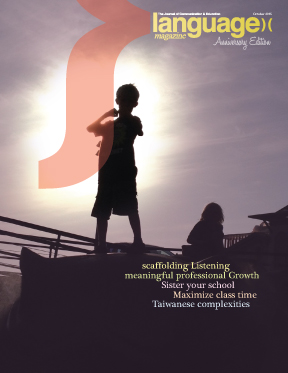A Tale of Two Leaders
Last month, two very different characters with very different messages dominated U.S. headlines: frontrunner for the Republican Party’s presidential nomination, businessman, and heir, Donald Trump continued to garner populist support with the age-old ploy of divide and conquer, while a modern, albeit ancient in legacy, religious leader, Pope Francis, preached inclusion and equality during his first visit to the U.S.
“This is a country where we speak English, not Spanish,” proclaimed Trump to a television audience of millions, while the Pope, fluent in Spanish, Italian, and German, persevered in English to get his message of conciliation across to the vast majority of monolingual Americans. He also used Spanish to get his message across, recognizing, as Nelson Mandela did, that if you speak in people’s mother tongue, you speak to their heart, rather than their head. Most of the crowd would have understood had he spoken in English, but the Pope, being more comfortable speaking Spanish, wanted to appeal to the audience of Hispanic Americans, many of whom have been moving away from Catholicism.
Now, when he made that statement, Mr. Trump was referring to rival Jeb Bush, a former governor of Florida who speaks adequate Spanish and whose wife was born in Mexico. Bush retorted intelligently, recognizing that using another language is a sign of strength and respect rather than weakness, “The simple fact is if a high school kid asks me a question in Spanish… I’m going to show respect and answer that question in Spanish, even though they do speak English and embrace American values.”
Bush proposes on his campaign website that learning English should be a requirement for immigrants seeking to earn legal status in the U.S., and President Obama has said that it should be part of a pathway to citizenship.
All immigrants want to learn the dominant language of their new country, so provisions should be made to help them learn it, while recognizing that their mother tongues are assets that should be respected and preserved. In Germany, international efforts are being made to help the wave of immigrants learn German in the knowledge that they and their hosts will benefit from better communications. There’s also been a nationalist and occasionally violent backlash against the newcomers who speak another language which most Americans, looking in from the outside, can see is born of ignorance and fear.
That same disrespect for the diversity of languages spoken in America should also be recognized as ignorance. Pope Francis’s message of tolerance is mirrored by his capacity to speak in different languages depending on the audience with which he is communicating. He understands that his Church is struggling to remain relevant to many of its followers so he is using his linguistic skills to better explain his message. Surely, we all want to be better understood?
Improving understanding between all nationalities, cultures, and races is key to the survival of the human race as we face international challenges like global warming, poverty, disease, and terrorism.
To help us solve these problems, we need not only more multilingual people but more multilingual leaders, here in America and elsewhere, so that we can better communicate our message and better understand the needs, desires, and aspirations of all peoples. Only then may we be in a position to make progress through negotiation, collaboration, and compromise.
IN THIS ISSUE:
B.O.O.S.T. Your Instruction!
Anne Paonessa finds ways to make the most of class contact time
Sisters Are Doin’ It for Themselves
Kristal Bivona on how increased access to communications technology has created new ways schools can use to develop international partnerships
Time to Listen
Monica Brady-Myerov suggests scaffolding listening in the English learner classroom
Meaningful Professional Growth
Amanda Seewald offers a spoonful of thoughts from a teacher coach
Taiwanese
Judy Heflin delves into the complexities of the Chinese dialect or topolect spoken in the former Formosa or “beautiful island”
Last Writes
Richard Lederer on the effect Yogi Berra had on our language



